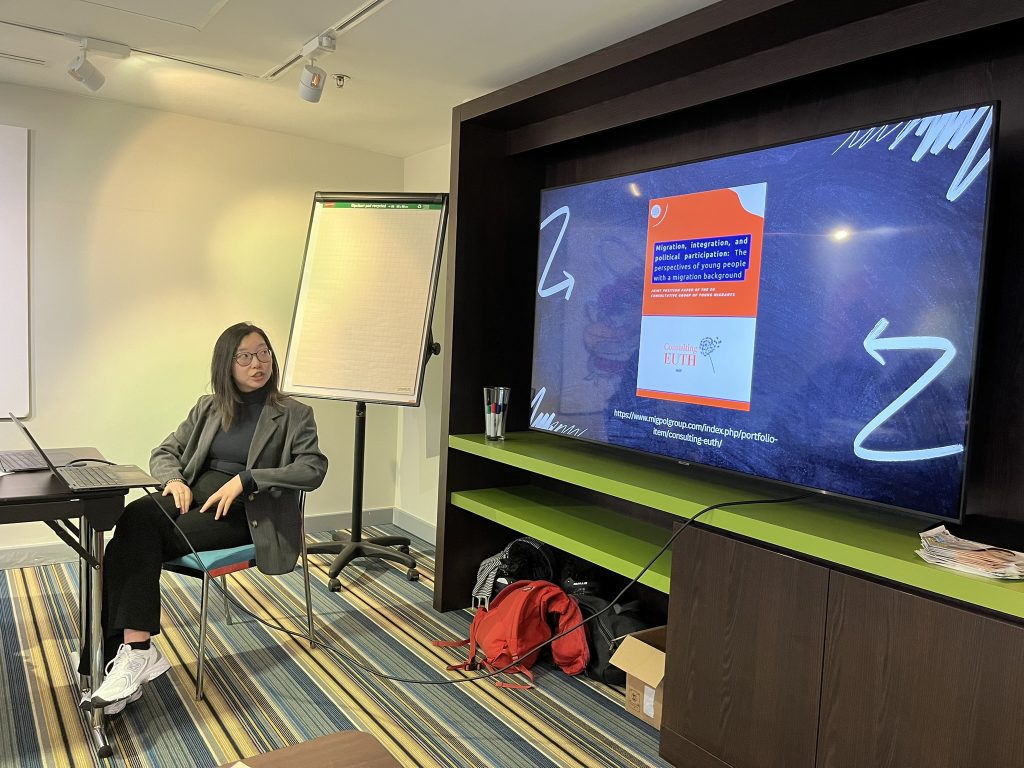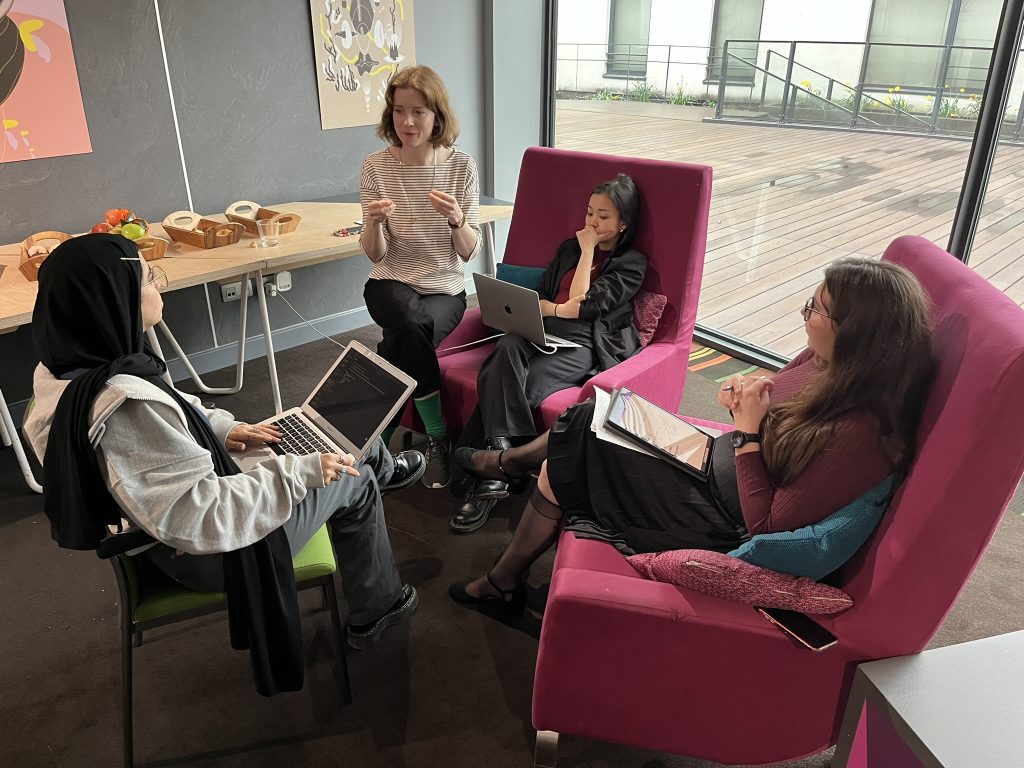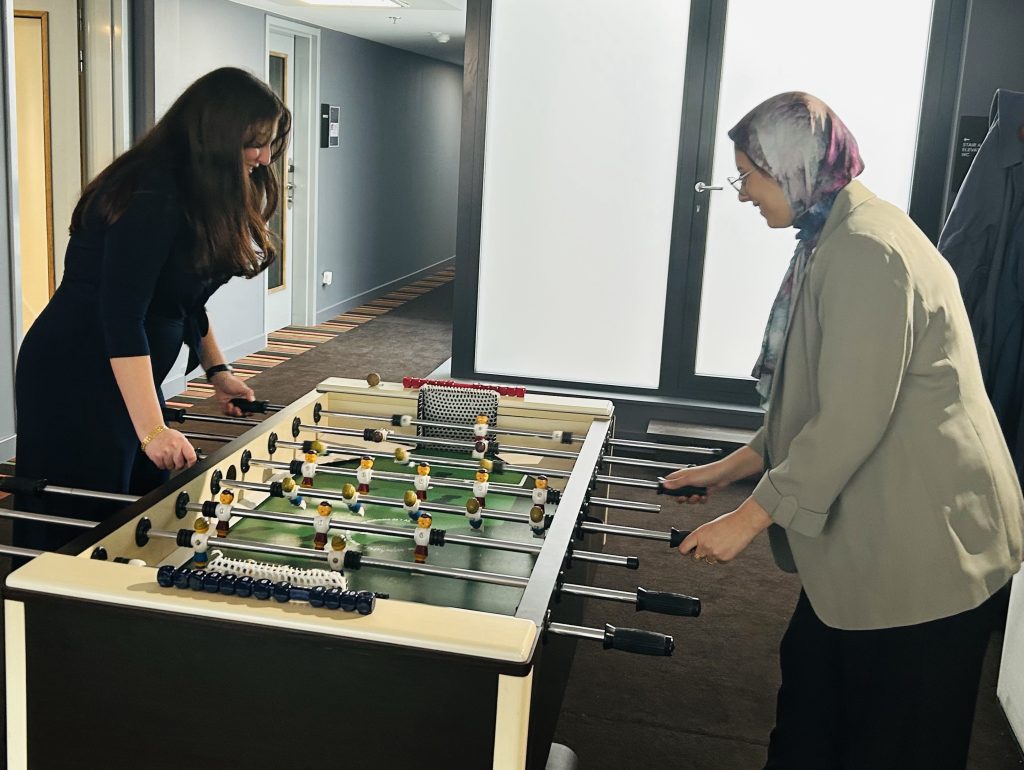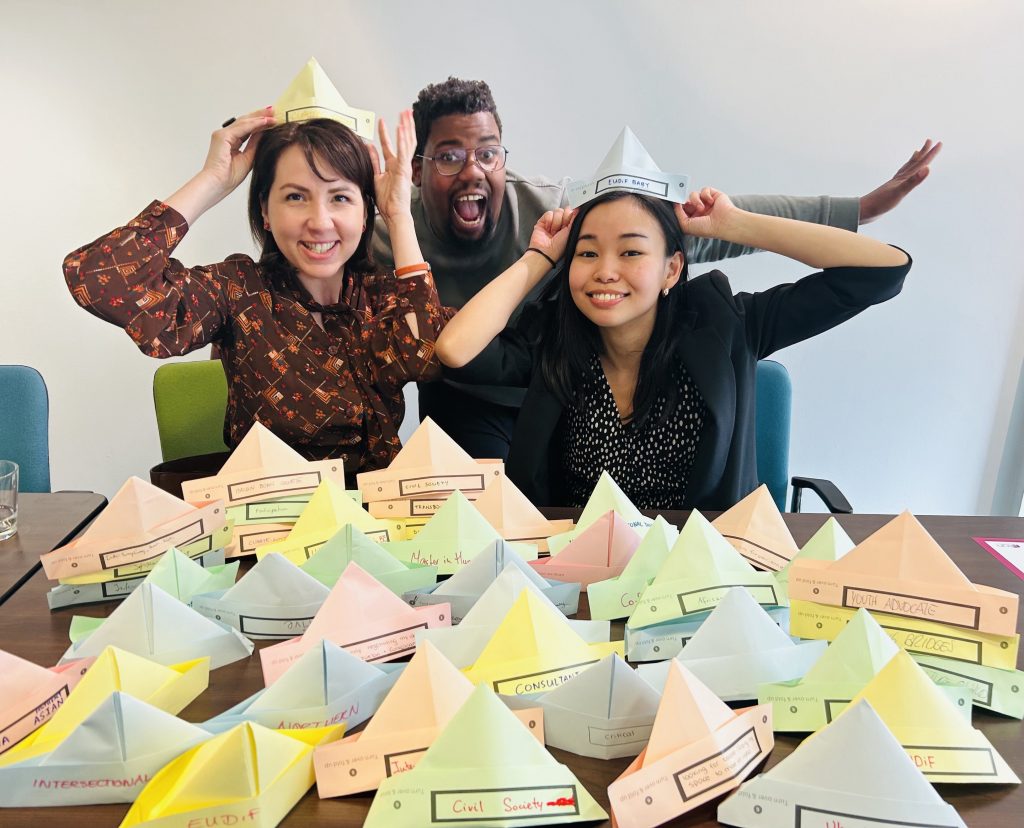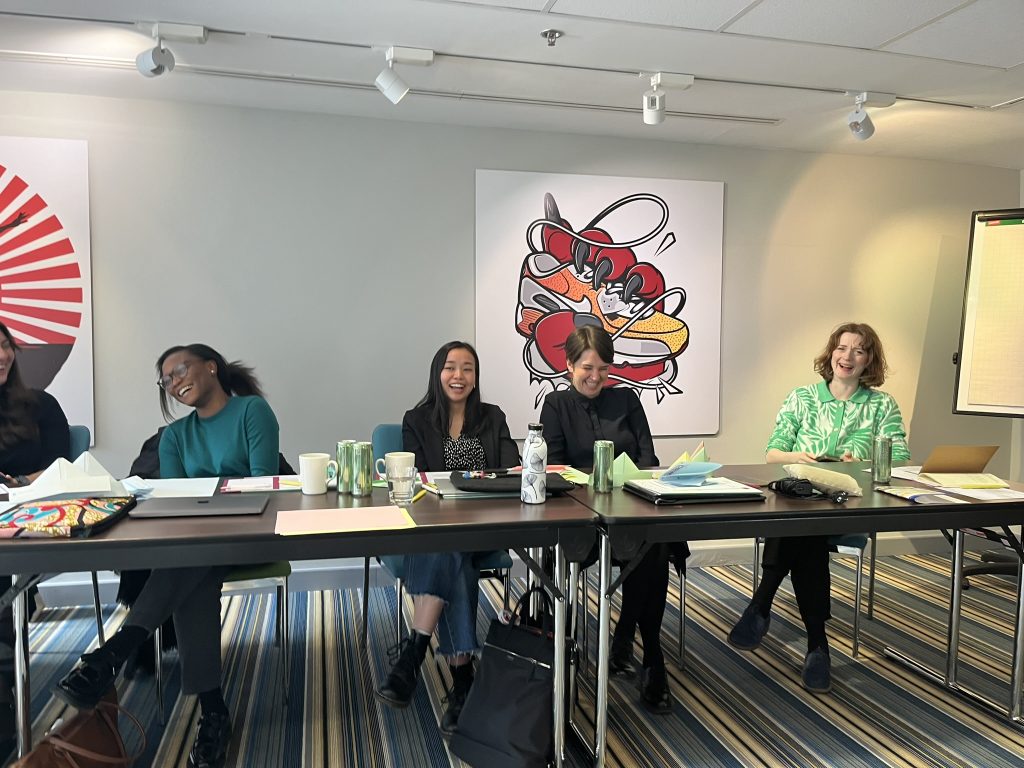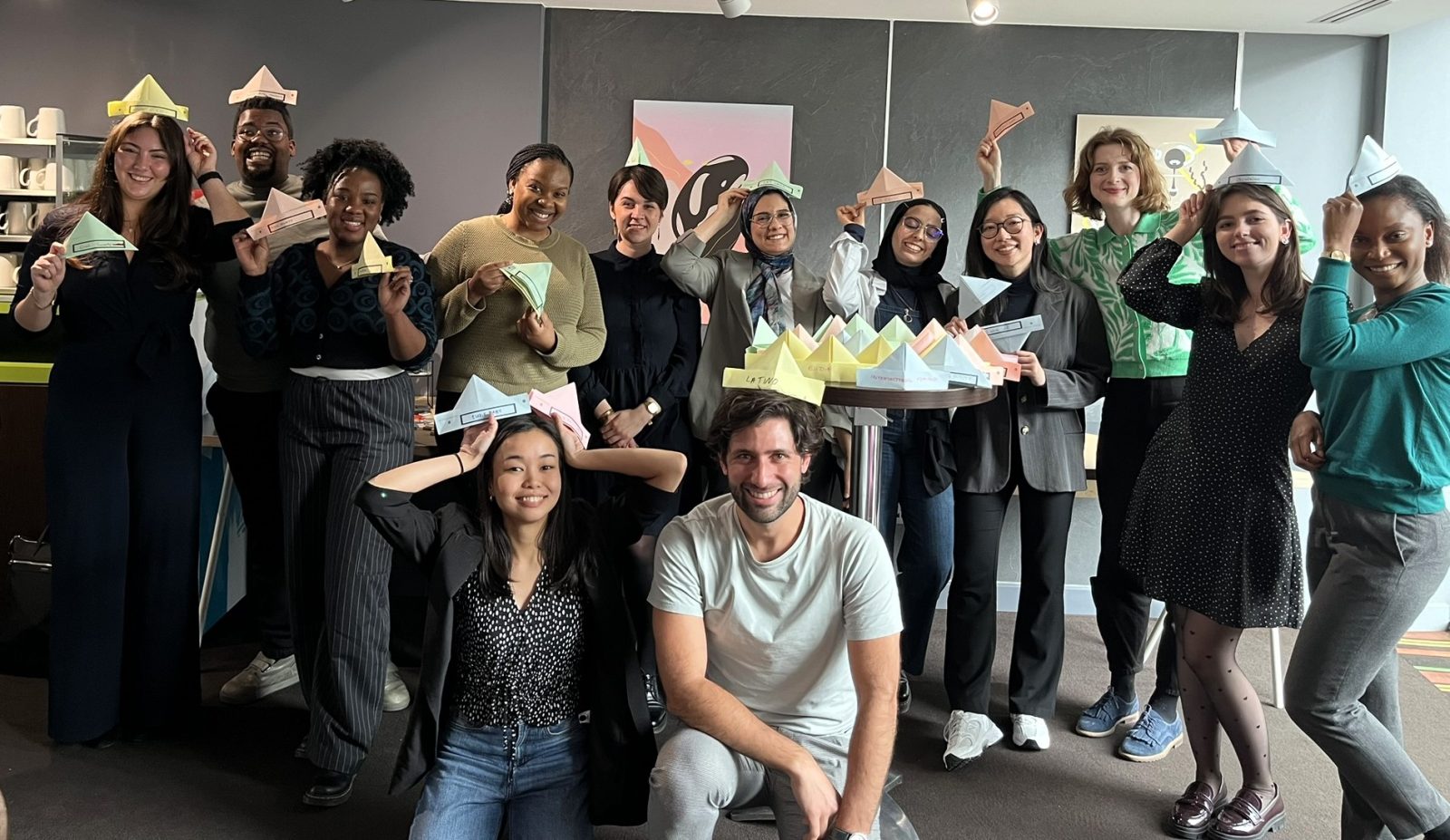
On 15-16 March, we invited 10 diaspora youth who are active in development work to join a focus session on youth priorities and practices, and how to better include youth in EUDiF and development programming more broadly.
Young people are universally acknowledged for their role in sustainable development, both for how it will affect their futures, and how they are some of the most active, effective and dynamic advocates for global change. The transnational nature of diaspora youth means they are able to operate in multiple spaces, across the breadth of sustainable development goals, bridging gaps between cultures, nations and generations.
With these attributes in mind and a second phase of EUDiF on the horizon, we organised a small focus session with 10 diaspora youth to discuss priorities and practices, to gather feedback to inform the design of EUDiF’s future activities and to discuss youth inclusion in development programming more broadly. As hosts, EUDiF was an active listener throughout. Three things really stuck out…
Many hats make light work
Figuratively, diaspora youth wear many hats – something we played with literally in the workshop. This multiplicity is a strength which is celebrated in the diaspora engagement context, as the combined attributes (including national and community connections, professional experiences, subject specialisations, volunteer work, migration experience, gender, religion, creed and much more) make for dynamic thinkers and operators who can navigate complex interlinking systems. Wearing multiple hats brings depth to discussion and means that a small focus group such as this one, speaks with more than 10 voices. Yet the question remains: how to go from an innate understanding of this, to designing policies and subsequently programmes that make the most of it? A challenge to all in the diaspora-development world.
Sometimes these hats bring challenges. Policy making and programming rely on labels and categories which risk pigeonholing people as one category or another, such as youth, limiting the full potential of their contributions and even restricting access to opportunities. This extends from the conceptual to practical level, from the time required to play multiple roles, to encouraging an employer – for example – to support engagement in different arenas.
As more and more institutions seek to engage youth in their processes, we must improve how we celebrate all those hats and support them to balance them. On this front, we discussed the value of sharing strategies between youth actors, the need for guidance for implementing organisations, and how to negotiate with employers.
Consult ethically and with purpose
A common question for any dialogue activity or consultation is “what comes next?” Young people are especially wary of consultation without purpose, they are savvy and cautious of engaging in box-ticking exercises. The EUDiF focus session sought to address this from the off, firstly by applying Chatham House rules to allow for no-holds-barred conversation, and secondly by engaging the participants as experts with a small follow up group assignment (results to follow!).
The participants were unanimous that whilst visibility and networking are important, young people (and youth organisations) cannot survive on these alone. Meaningful, sustainable engagement with young people requires recognition of their time and expertise, in other words, financial compensation. Whilst this is not always feasible due to project design or resource availability, organisers need to address this head on and be transparent when engaging with young people.
Moreover, consultations should strive for greater inclusion and need to systematically invest resources in making this possible, including reaching out to different communities and facilitating participation for disabled youth.
Taking an ethical approach to consultation design is vital to create a space in which critical feedback can be shared (and absorbed!).
Break bread, build community
There is nothing like sharing a meal to create an “enabling environment”. Being together in person was crucial to create a space for open, direct and rich discussions, as well as to kick-start the working groups.
The benefits of collaborating online are significant in terms of environmental impact, lowering thresholds to participation, widening the scope for involvement and maximising tight budgets. Nevertheless, to create camaraderie, team spirit and start building trust, nothing compares to meeting in person.
To balance the positives and negatives of in-person versus online, consultation exercises can learn from the not-so-new normal of hybrid work by combine methods to create connections whilst maximising resources. And of course, serve hot food.
So, what does comes next?
The participants in this focus session are now working in groups to consolidate the discussions. As EUDiF moves into its second phase, we will strive to incorporate the feedback on our youth internship and alumni community, as well as in how we set up forthcoming capacity development opportunities to make them as accessible as possible for youth organisations. We will also use the feedback to feed bilateral and multilateral discussions on diaspora engagement for development, and continue to promote and platform youth voices wherever possible.
One of the greatest unplanned results of EUDiF’s first phase is in the creation of the Diaspora Youth Community – the alumni of the Diaspora Youth Internship who remain in contact with the project, offering support and advice to the project based on their own expertise, whislt also building their own community. This youth focus session has been a brilliant chance to expand the circle of diaspora youth feeding directly into the project and we hope to find more concrete opportunities to collaborate with youth actors in the project’s second phase.
Thank you to all who participated for your enthusiasm, critical thinking and good humour.
Whilst we cannot list the innumerable hats the participants wore, for a little more on some of their respective projects and associations, please check out: African Union Diaspora Youth Initiative, ConsultEUTH, #DiasporaVote!, European Citizen Action Service, European Union Youth Sounding Board, Migration Youth and Children Platform, GFMD Civil Society Mechanism, 1.2 Climate Diaries.
